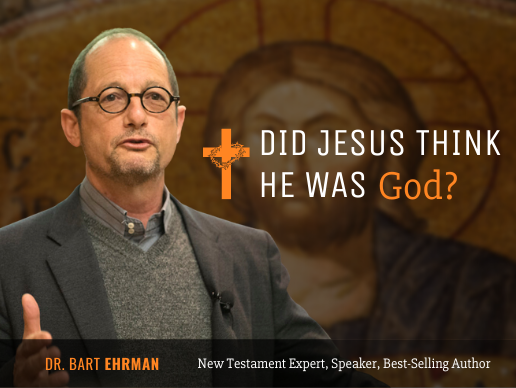Jesus in Islam: Is He God, a Prophet, or a Man in the Quran?

Written by Marko Marina, Ph.D.
Author | Historian
Author | Historian | BE Contributor
Verified! See our guidelines
Verified! See our editorial guidelines
Date written: February 5th, 2024
Edited by Laura Robinson, Ph.D.
Disclaimer: The views and opinions expressed in this article belong to the author and do not necessarily match my own. - Dr. Bart D. Ehrman
Growing up in Bosnia and Herzegovina, a land where the minarets of mosques and the steeples of churches punctuate the skyline in harmonious coexistence, I was immersed in a rich tapestry of religious diversity.
This unique cultural milieu, where Christian and Muslim traditions intertwine, naturally fostered a deep curiosity in me about the varying religious perspectives on pivotal figures. One such figure, central to both Islam and Christianity, is Jesus.
The exploration of Jesus in Islam isn’t just an academic exercise; it's a journey into understanding how one of history's most revered figures is perceived across different faiths. In Islam, Jesus is a figure shrouded in reverence, yet often misunderstood by those outside the Islamic faith.
This article aims to demystify the Islamic perspective of Jesus, delving into the Quranic portrayal of his identity, his teachings, and his role in Islamic theology. By maintaining an objective, scholarly approach, we will navigate through the Quranic verses and Islamic traditions, unraveling the complex tapestry of beliefs surrounding Jesus in Islam.
This exploration isn’t only pivotal for fostering interfaith dialogue but also essential for understanding the social and religious fabric of societies like Bosnia and Herzegovina, where such dialogues shape the very essence of daily life.

Understanding the Quran: A Key to "Jesus in Islam"
To delve deeper into the portrayal of "Jesus in Islam," it is essential to first understand the Quran, the central religious text in Islam. The Quran isn’t just a spiritual guide but also a complex historical document, reflecting the early stages of the Islamic community in Western Arabia.
As the foundation of Islamic theology and law, it offers invaluable insights into the beliefs and practices of early Muslims, including their perspectives on figures like Jesus.
Fred M. Donner provides a nuanced view of the Quran's origins, highlighting its complexity as a literary work:
“The Quran is the product of the earliest stages in the life of the community in Western Arabia. But although it claims to be in a 'clear Arabic tongue,' many passages in it remain far from clear, even in the most basic sense of knowing what the words might have meant in their original context, whatever it was. It may be that the Qur'an includes passages from older texts that have been revised and reused."
This observation underscores the Quran's layered composition, a testament to the dynamic and evolving nature of the early Islamic community.
Did You Know?
While exploring the profound respect and reverence that Islam holds for its prophets, there's a fascinating aspect of Islamic tradition that often intrigues many: the depiction of Muhammad is strongly discouraged, if not outright forbidden, in Islamic art and literature. This stems from the concern of idolatry – the fear that images might lead to the worship of figures, rather than God.
Unlike the rich tradition of religious art found in Christianity, where depictions of Jesus and saints are commonplace, Islamic art has largely abstained from portraying prophets. This led to the development of a unique artistic culture in the Islamic world, where calligraphy, geometric patterns, and floral designs are elevated to an art form, often used to symbolize the divine and the spiritual, without resorting to physical representations.
Traditionally, Muslims believe that the Quran is the verbatim word of God, as revealed to the Prophet Muhammad over approximately 23 years, starting in 610 CE. The revelations were delivered in Arabic and were initially transmitted orally.
The compilation of these revelations into a single, coherent text was a process that began during the life of Muhammad and continued after his death, culminating in the standardized Quranic text known today.
The language of the Quran, while eloquent and powerful, often presents challenges for interpretation, as Donner notes. Its verses (ayat) cover a wide range of topics, including theological doctrines, moral guidance, legal principles, and narratives of previous prophets, among them Jesus.
The Quran's portrayal of Jesus, distinct from Christian texts, is integral to understanding his role in Islamic theology and the broader narrative of "Jesus in Islam.
Jesus in Islam: What Does the Quran Say About Jesus?
In the Quran, Jesus is a figure of deep reverence and significance. The name of Jesus in Islam is “Isa” and his portrayal in the Quran is often a revelation to those more familiar with the Christian narrative!
While Islam acknowledges Jesus as a revered prophet and messenger, it distinctly separates itself from Christian doctrine in its interpretation of his nature and role. The Quranic depiction of Jesus is multi-faceted.
He is described as a miraculous figure, born to the Virgin Mary, and endowed with divine revelations. However, in contrast to Christian theology, Islam firmly rejects the notion of Jesus as the Son of God or part of a divine trinity.
Fred M. Donner showed how the Islamic rejection of Jesus’ divine nature was crucial in the process of shaping Islamic identity as distinct from Christianity. Instead of the Christian belief in Jesus’ divine nature, he is venerated as a human prophet entrusted with guiding the Children of Israel with a new Scripture called the “Injil” (Gospel).
Describing the notion of Jesus in Islam, Carole Hillenbrand notes that “Muslims have no difficulty in accepting Jesus as a prophet; indeed, they venerate him deeply and regard him as the immediate predecessor of Muhammad in a prophetic line that stretches back as far as Abraham.”
This portrayal aligns with the Islamic principle of Tawhid (the absolute oneness of God) which is, as Hillenbrand explains, the central message of the Quran. In it lies the biggest doctrinal difference between Islam and Christianity.
To provide a clearer understanding of Jesus in Islam, let’s examine some key verses from the Quran:
Quranic Verse | Surah (Chapter) and Verse |
|---|---|
"Indeed, the example of Jesus to Allah is like that of Adam. He created Him from dust; then He said to him, 'Be,' and he was." | Surah Al-Imran 3:59 |
"And [mention] when Jesus, the son of Mary, said, 'O Children of Israel, indeed I am the messenger of Allah to you confirming what came before me of the Torah and bringing good tidings of a messenger to come after me, whose name is Ahmad.'" | Surah As-Saff 61:6 |
"She said, 'How can I have a boy while no man has touched me and I have not been unchaste?' He said, 'Thus [it will be]; Allah creates what He wills. When He decrees a matter, He only says to it, 'Be,' and it is.' | Surah Maryam 19:20-21 |
"And [for] their saying, 'Indeed, we have killed the Messiah, Jesus, the son of Mary, the messenger of Allah.' And they did not kill him, nor did they crucify him, but [another] was made to resemble him to them." | Surah An-Nisa 4:157 |
These verses encapsulate key aspects of Jesus in Islam:
The Quran also vividly describes several miracles attributed to Jesus, underscoring his status as a prophet endowed with divine support. Notable among these is his ability to heal the blind and the leper, a miracle that echoes the narratives found in Christian texts.
Additionally, the Quran speaks of Jesus breathing life into a clay bird, which then becomes a living bird by God's permission. This particular miracle, not found in canonical Christian scriptures, emphasizes the unique nature of Jesus' prophetic mission in Islam.
Moreover, Islam has a distinct perspective on the crucifixion of Jesus. According to the Quran, Jesus wasn’t crucified but was raised to heaven by God. Someone else was made to resemble him and was crucified in his place. In the Quran, as John Esposito explains, “There is no theological need for the all-atoning sacrifice of Jesus through his crucifixion and resurrection.”

Jesus in Islam: The Key Aspects of Islamic Tradition
A common question that arises in interfaith dialogues is, "Do Muslims believe in Jesus?" The answer is a definitive yes, but the nature of this belief is distinct from the Christian perspective. Jesus in Islam is revered as one of the most important prophets, but not as divine. His role and significance are deeply embedded in Islamic theology, where he is regarded as a messenger of God.
This leads to another critical inquiry: "Is Jesus God in Islam?" The Islamic doctrine is clear on this matter; it firmly denies the divinity of Jesus, upholding the principle of Tawhid. In Islamic belief, attributing divinity to Jesus is seen as a deviation from the monotheistic essence of Islam. The Quran explicitly states that Jesus, like all prophets before him, was a human being, chosen by God to deliver His message.
Question | Christianity | Islam |
|---|---|---|
Did Jesus Exist? | Yes | Yes |
Was He Messiah? | Yes, as Christ | Yes, but not in the Christian sense |
Was He Divine? | Yes, fully divine and fully human | No, “just” a great prophet of God |
Did He Die on the Cross? | Yes | No, he was taken up to God |
Did He Rise After His Death? | Yes | No |
His Role in End Times? | Second Coming - central to Christian eschatology | Will return to restore justice |
In addition to his prophetic role, the Islamic narrative of Jesus also includes a unique account of his birth, which is regarded as one of the miracles of God. The Quran describes Jesus' birth as a miraculous event, with Mary, known as Maryam in Arabic, giving birth to Jesus as a virgin.
This event is seen as a sign of God's power and a testament to Jesus' special status as a prophet. However, unlike Christian doctrine, this miraculous birth doesn’t imply divinity but rather serves to emphasize the extraordinary nature of Jesus' prophethood.
Furthermore, within the broader spectrum of Islamic theology, beyond the Quranic text itself, Jesus is recognized as the Messiah, a designation imbued with profound implications. David Cook posits that Islam likely originated as an apocalyptic movement, retaining a potent apocalyptic and messianic character throughout its history.
However, the designation of Jesus as the Messiah in Islam is interpreted differently than in Christianity. In Islam, “Messiah” (Al-Masih in Arabic) refers to Jesus' role as a blessed messenger, endowed with the task of guiding the Children of Israel. It signifies Jesus’ esteemed status among the prophets but doesn’t claim his divine origin or nature.
The Islamic portrayal of Jesus challenges common perceptions, especially among those who view the narrative through a solely Christian lens. Jesus in Islam is seen as a prophet of immense piety, wisdom, and moral authority, but his role stops short of any divine attribution.
Jesus in Islam: Summing up Conclusions
In our exploration of "Jesus in Islam," we traversed a landscape rich in historical and theological nuance. It becomes clear that in the Islamic tradition, Jesus is not only deeply respected but also plays a vital role as a prophet.
This understanding of Jesus as a prophet in Islam is central to the faith's monotheistic essence and distinct theological identity. The Quranic portrayal of Jesus, coupled with the teachings of Muhammad, forms a complex tapestry that intertwines with the broader narrative of Abrahamic religions.
The journey through the Islamic perspective of Jesus reveals a figure who is deeply venerated, a bringer of divine wisdom, yet firmly human. This image of Jesus, while differing significantly from Christian theology, offers a unique window into the shared heritage and divergent paths of these two great religions.
Yes, while Islam rejects the notion of Jesus as a deity and Christianity upholds it, an intriguing question remains: Did the historical Jesus ever claim to be God? For those eager to delve deeper into this fascinating subject, Dr. Bart D. Ehrman’s online course “Did Jesus Call Himself God?”, offers a compelling exploration!

